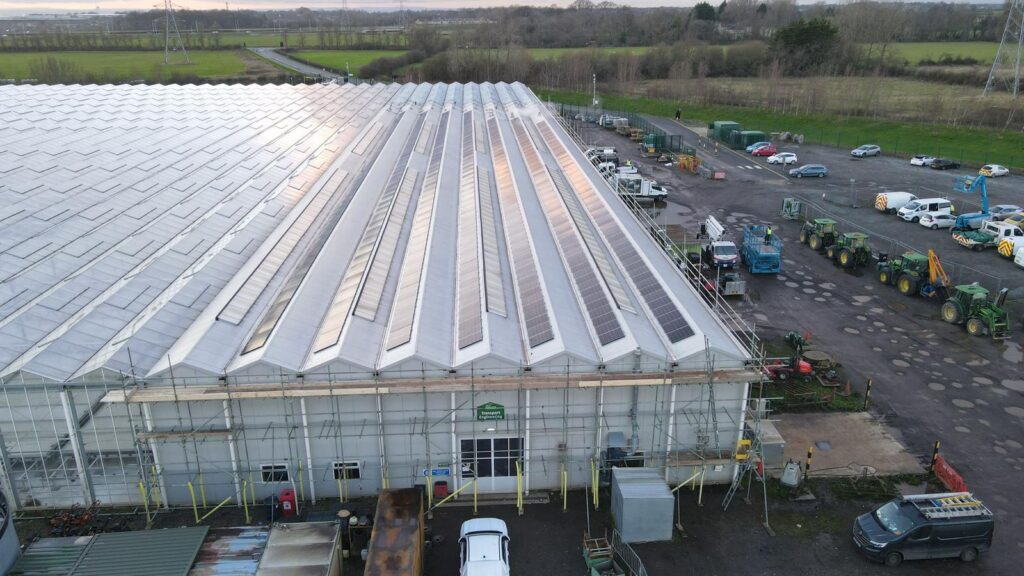Europe’s first dedicated CO2 monitoring satellite successfully launched into orbit through partnership between UK Space Agency and CNES.
A groundbreaking new satellite, MicroCarb, is now in orbit around Earth, ready to map CO2 emissions across urban areas at unprecedented level of detail – gathering vital detail to help us better understand and tackle climate change.
Photo Credit: ESA-CNES-ARIANESPACE/Optique vidéo du CSG–S. MartinThe satellite was launched on a Vega-C rocket from Kourou in French Guiana, as is the result of a partnership between the UK Space Agency – which invested £15m in the project – and CNES, the French space agency.
While there are already satellites in orbit monitoring CO2 and other greenhouse gases (GHGs), the MicroCarb project is a ‘first’ in several important ways. It’s Europe’s first dedicated CO2 monitoring satellite, and it will monitor at a level of detail never achieved in space before.
From orbit 650km above Earth, it will map CO2 emissions across urban areas at 2km x 2km resolution.
Emissions from cities comprise more than 70% of all CO2 output across the world. MicroCarb’s precise measurements will be used to verify climate targets and track progress towards commitments made under the Paris Agreement. The data will also be used to guide net zero and carbon-reduction strategies.
MicroCarb will also monitor natural carbon sinks such as forests and oceans, and measure solar induced fluorescence (SIF) – the faint glow given off by plants off during photosynthesis. The latter will help scientists better understand how much carbon plants absorb as part of the wider carbon cycle.
The UK’s National Physical Laboratory (NPL), Thales Alenia Space, the Science and Technology Facilities Council’s RAL Space in Harwell and GMV UK have all played a part in getting this innovative project to launch.
Professor Paul Palmer, UK lead for MicroCarb, says: ‘Currently, we are witnessing rapid and unprecedented changes in the global carbon cycle. MicroCarb will deliver SIF and atmospheric CO2 data that are crucial for understanding those changes. It will also reinvigorate an aging virtual satellite constellation, providing high quality data to inform the next Global Stocktake of the Paris Agreement. More broadly, MicroCarb exemplifies the world-class capabilities of UK science and engineering, working closely with our French colleagues.’
Dr Paul Bate, Chief Executive of the UK Space Agency, adds: ‘Satellites like MicroCarb are our eyes in the sky. Over half of the critical data we use to understand climate change comes from space, and MicroCarb’s successful launch is a major leap forward in our ability to track carbon emissions and absorption with unprecedented accuracy, from the world’s cities to its forests and oceans. Backed by UK and French investment and expertise, it’s a proud moment for both our space sectors and a powerful example of international collaboration in action.’
Sir Chris Bryant MP, UK Minister for Space, says: ‘This groundbreaking mission is proof of what can be achieved when we harness the strength of Britain’s burgeoning space industry, together with our deep scientific expertise. Bolstered with £15m UK government backing, the MicroCarb satellite will overhaul our ability to track carbon emissions – supporting the clean energy mission that’s key to this government’s Plan for Change.
‘It’s also further evidence of the value of our deep and unique relationship with France: a partnership which the Prime Minister reinforced, with President Macron, at the UK-France Summit earlier this month.’
In related news:
Glasgow, Cardiff, Belfast lead local government race for £30m tech support
Opinion: AV in the public sector – enhancing the delivery of public services

















Leave a Reply